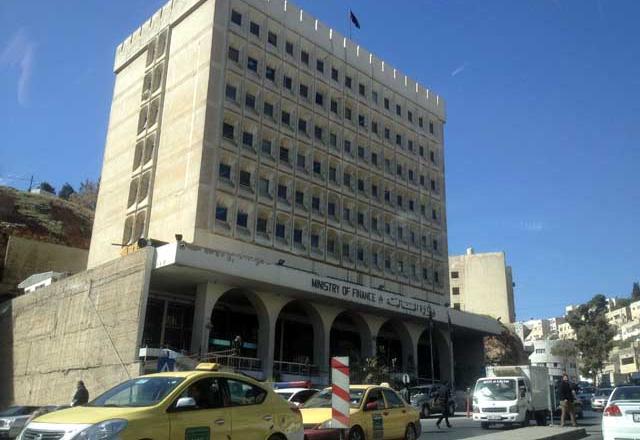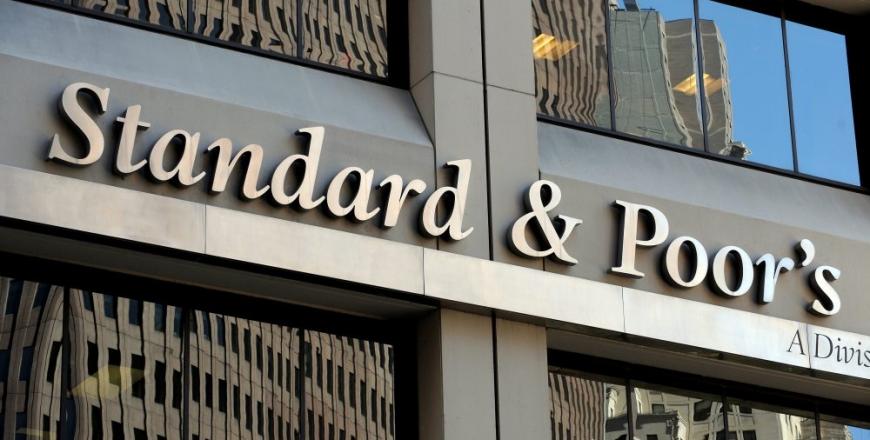You are here
Standard & Poor’s keeps Jordan’s credit rating at BB-/B
By Dana Al Emam - Apr 22,2017 - Last updated at Apr 22,2017
AMMAN — Standard & Poor's (S&P) reaffirmed its BB-/B credit rating to Jordan, with a "negative" outlook due to a number of domestic and regional factors, according to a report released on Friday.
Jordan was placed in the Banking Industry Country Risk Assessment’s (BICRA) 7th group, along with Bulgaria, El Salvador, Indonesia, Morocco, the Philippines, Portugal and Slovenia.
The report cited "very high" economic resilience and credit risk in Jordan, with "intermediate" economic imbalances, while the industrial factors were described of "high" institutional framework, competitive dynamics and system-wide funding.
"Despite low growth, we anticipate that the Jordanian authorities will continue to contain fiscal and external balances in 2017-2020, assisted by an International Monetary Fund [IMF] programme," according to S&P.
"We also believe that Jordan will remain strategically important to bilateral donors, who will continue to provide fiscal and external funding support," the global rating organisation added.
The New York-based organisation explained that the Kingdom's negative credit rating outlook reflects the ongoing challenges of fiscal consolidation and Jordan's external position, particularly in the context of its low growth environment and high unemployment, in addition to the ongoing regional instability.
Jordan’s rating was affected by its high public debt and its economy’s large external financing, the report said, noting that the government’s efforts towards fiscal consolidation implemented since last year are expected to reduce the accumulation of financial obligations for the Teasury.
International assistance from the US and the Gulf Cooperation Council also contributed to Jordan’s ranking.
The report expects regional tensions to continue challenging economic growth .
However, it noted that the reopening of trade routes with Iraq should benefit exports and transit fees revenues and consequently reduce financial and economic burdens.
Commenting on the report, former finance minister Mohammad Abu Hammour stressed that the ranking criteria “highly considered” the outlook of the region as a major factor, noting that Jordan’s economic reform programme with the IMF is sending the right messages to investors and donors.
He pointed out that the government and people had to shoulder the economic burdens of hosting Syrian refugees in light of the international community’s limited commitment, which, he said, only covered an average of 40 per cent of the costs.
This worsened economic performance over the past few years, he said, by increasing state budget deficit and indebtedness, with economic growth rates of nearly 2 per cent compared to population growth rates.
Meanwhile, he cited a “comforting” performance of Jordan’s banking system and the fiscal policies of the Central Bank of Jordan, despite a slight drop in reserves of foreign currency, prompted by the need to make up for losses caused by border closures with neighbouring countries.
For his part, economist Mifleh Aqel said he disagreed with the report’s negative outlook, arguing that this perception of Jordan is out of date and that it did not take into consideration the economic indicators for the first quarter of this year.
He explained that vital sectors recorded positive performance indicators over the past three months, including tourism, exports and remittances of Jordanian expatriates, citing a “good” activity on the financial market at this time of year.
While Aqel did not expect economic growth rates to exceed 2.5 per cent, he said that the Jordanian economy has survived 6 years of the Syrian conflict and a year of border closure with Iraq.
Regarding investments, he said the entire region is witnessing a drop in investment volume, mainly in connection to dropping oil prices, and he noted that countries with mega investment projects like Saudi Arabia and Qatar have been dropping their investments and lending more.
Related Articles
AMMAN — Jordan has successfully issued $500-million worth of Eurobonds on international markets, the Ministry of Finance said Wednesday.The
Jordan has regained its stable credit rating from Standard and Poor's (S&P) almost three years after a downgrade to negative over concerns of economic and political problems caused by regional instability.
AMMAN — Sovereign credit rating agency Standard & Poor’s (S&P) has maintained Jordan’s credit outlook as B+/B with a stable outlook,


















